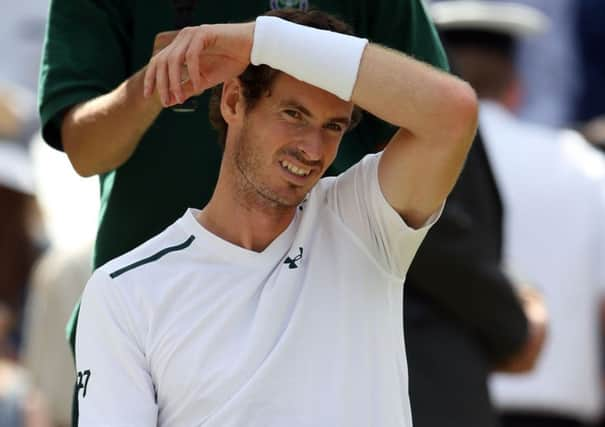Surgery could be option for troubled Murray as his injury agony continues


Britain’s former world No 1 withdrew from the Australian Open yesterday and is considering going under the knife to try to resolve the problem, which has kept him sidelined since Wimbledon.
Murray has kept the exact details of the injury private, but is known to have consulted a number of specialists in an attempt to find the best way forward.
Advertisement
Hide AdAdvertisement
Hide AdWith a conservative approach not having allowed him to return to the court, an operation now appears a likely course of action.
Murray had hoped to avoid surgery and admitted in an emotional social media post earlier this week that he has been told the chances of a successful outcome are not as high as he would like.
Professor Max Fehily, the lead surgeon at The Manchester Hip Clinic, has extensive experience operating on athletes with similar problems.
Fehily sees surgery as being a good option for Murray and one that could allow him to return to the top of the sport, albeit after a significant period on the sidelines.
Advertisement
Hide AdAdvertisement
Hide AdHe said: “He’ll have had the best physio and body strengthening you can have, so then the next step is surgery, and in a way I’m surprised he’s left it this long because it’s very difficult to perform at his level with that kind of an injury.”
He added: “As I understand, he’s got a condition called femoroacetabular impingement, which is very common in athletes.
“We see a lot of it in football, rugby, squash, tennis, and essentially it’s where the ball of the hip impacts against the cup.
“One of the problems with athletes is, as it impacts repeatedly, eventually it can damage or tear the labrum, but it can also eventually start to cause arthritis.
Advertisement
Hide AdAdvertisement
Hide Ad“Everybody’s on a spectrum, with one end being just a cartilage tear and the other end being significant joint surface damage.”
He continued: “Recovery from keyhole surgery, you’re looking at realistically six to 12 months before you’re back at top level. He’ll have done a lot of work pre-surgery to make him stronger and that will speed up his recovery.
“Based on what’s in the public domain, there’s no reason why he can’t return to his previous level, but it will all depend on how much damage is already there.”
Murray’s withdrawal from the year’s first grand slam appeared inevitable after he pulled out of his scheduled warm-up tournament in Brisbane earlier this week.
Advertisement
Hide AdAdvertisement
Hide AdIn a statement, the Scot said: “Sadly I won’t be playing in Melbourne this year, as I am not yet ready to compete.
“I’ll be flying home shortly to assess all the options but I appreciate all the messages of support and I hope to be back playing soon.”